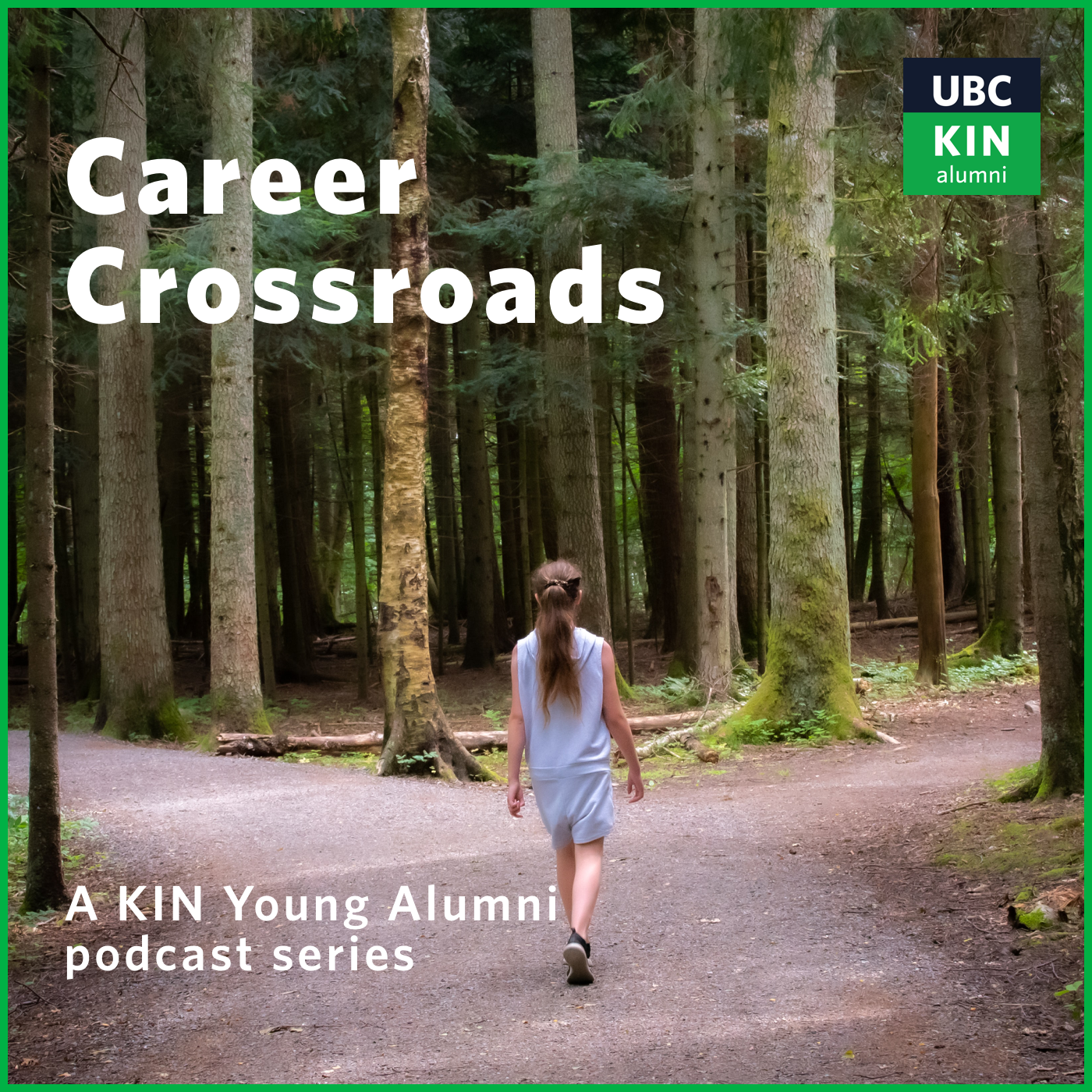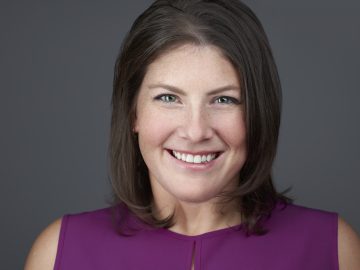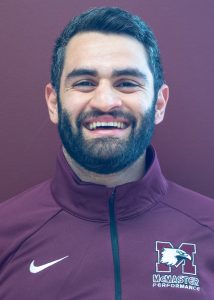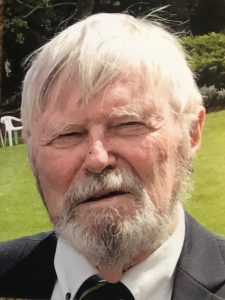Aug. 12, 2020 – Many congratulations to Dr. Krista Glowacki who recently passed her doctoral defence!
Career Crossroads: A Young Alumni Podcast Series

Introducing Career Crossroads, a UBC School of Kinesiology podcast series produced by KIN Young Alumni, for KIN Young Alumni and graduating students. It’s critical now more than ever, no matter what stage of your career, to continue to look for work and stay connected during these unprecedented times.
- Check out the Career Crossroads podcast page: Click Here.
- Find the podcast on Spotify: Click Here.
Dr. Katie Di Sebastiano on CFAX 1070
Aug. 10, 2020 – Listen to Dr. Katie Di Sebastiano on CFAX 1070 discussing the decline in physical activity in Canadian adults during the pandemic. Listen to it here!
Career Crossroads – Episode #1
Introducing Career Crossroads, a UBC School of Kinesiology podcast series produced by KIN Young Alumni, for KIN young alumni and graduating students. It’s critical now more than ever, no matter what stage of your career you’re in, to continue to look for work and stay connected during these unprecedented times.
Join KIN alumni, Yingying Zhao and Alyssa Reyes as they interview other Kinesiology alumni about how they navigated their next steps in life after university. Hear alumni stories, experiences and tips for success to help guide you in your career journey.
Episode #1 – July 31, 2020
In this first Career Crossroads episode, host Yingying Zhao interviews two staff members from Babylon Health.
Christopher Ly, a UBCKIN 2018 alum with a Masters of Management degree, recounts his experience of being onboarded remotely;
Babylon Senior Associate, Pareesa Kassam relays what she looks for when she hires a new staff member during these unprecedented times.
Next month join host Yingying Zhao as she interviews entrepreneur and physiotherapist, Shayne River Casey-Shaw (BKin 17).
Watson, Laura

Laura Watson is a High Performance Coaching Advisor with Own the Podium where she is responsible for implementing the Coaching Enhancement Program. This program aims to support Canada’s coaches in the pursuit of world class coaching excellence in Olympic and Paralympic sport.
Laura has served as a ringette coach at every level, from grassroots to Team Canada. Prior to obtaining a Master’s degree in high Performance Coaching and Technical Leadership (MHPCTL), Laura completed her BHK at the UBC School of Kinesiology and an Executive Education program at Sauder.
As the first cohort for the MPHCTL degree, she experienced the program from its beginnings. She says “I first considered the MPHCTL because I was looking to do higher education and couldn’t find a program that suited my work and travel schedule. The flexibility of the MHPTCL program allowed for both synchronous and asynchronous sessions. This was very advantageous especially when out of the country and on different time zones.”
Kopecky, Igor
.webp)
Igor Kopecky has been a coach and athlete for the past 35 years, and is currently the technical director for BC Diving and the South Surrey White Rock Diving Club. Igor has coached at the World Cup, World Series, South American Championships, Commonwealth Games, World Junior Championships and the Pan Am Games. He states that his experience in the Masters of High Performance Coaching and Technical Leadership (MHPCTL) program has had a significant impact on how he currently works with athletes, coaches, parents and the sport system at large.
Igor says that as a result of having completed the MHPCTL degree, “When I plan training camps and meet with the PSI and Via Sport, not only do I now have the language, but also the experience in studying the framework and methodology behind successful sport systems. This confidence and experience is definitely helping me work in our diving community in BC.” Prior to the MHPCTL, Igor was a diver on the Canadian National Team. He has coached for the Canadian National Diving Team and recently he for the Peruvian National Diving team where he took the team from zero to becoming South American contenders.
Igor undertook the MHPCTL program while he coached in Peru. He states that although there was strong comradery in his cohort, the program was challenging. He explains that there “was definitely a lot of independent academic work that required writing long papers. However, it was a good exercise and impacted my thinking. The process seemed to make me analyze and absorb material leading to more nuance and understanding even as I rushed to make a deadline. This reflection and testing of ideas by reviewing studies, writing about them and presenting them were for me what the program was about.”
Dr. Guy Faulkner on CBC Listen
Jul. 22, 2020 – Check out Dr. Guy Faulkner on CBC Listen: Alberta at Noon with Judy Aldous speaking about free range parenting during a pandemic.
Bahrami, Ben

Ben Bahrami, is a Strength and Conditioning Coach for McMaster University. He is grateful that the UBC Masters of Kinesiology allowed him to focus on his passion and believes that although his knowledge of human physiology and biomechanics improved significantly, the most valuable thing he learned was how to establish a culture as a coach. He states that “the skillset I learned here was key for my career growth. The combination of the freedom afforded to me in my academic projects, and the flexibility of the program allowed me the practical experience I needed to develop as a coach.”
Ben was inspired by such Kin professors as, “Dr. Maria Gallo, who was just taking over the MKin program at the time; she was a fantastic resource and a supportive voice. Carl Bergstrom, who is now the Strength and Conditioning coach for the Golden State Warriors, was someone with whom I was able to share my ideas. Finally, Dr. Michael Koehle was one of my favourite instructors, as I found his approach to teaching very honest and effective.”
Ben had never considered becoming a performance coach as a boy. However, many opportunities popped up for him to help out in the varsity gym during his undergrad years. It was through those experiences, combined with his degree requirements that sparked his interest in the field of strength and conditioning. But mostly, Ben says that it’s because “I have benefited from so many great people coaching me throughout my life. It was easy to decide to be a coach once I figured out the incredible positive influence so many have had on me as an individual.”
Ben’s tips to students for success:
1. Do what makes you excited when you get up in the morning.
2. Genuine interest and passion in a career will always be successful.
3. Treat everyone the same, coach everyone differently.
4. Accept every opportunity that can make you, and those around you, better.
5. Prioritize family and health.
Engelson, Monte (1939-2021)
 Monte Engelson graduated with a Bachelors of Physical Education in 1962, and soon become a physical education teacher at Mount Elizabeth Secondary School. This was just to be the start of his long journey in education. Having discovered his passion for teaching, Monte returned to UBC to obtain a degree in the Faculty of Education. He then spent the next 25 years working as an elementary school PE teacher. In his last 10 years before retirement, Monte switched from PE to IT and became the Technology Coordinator for the school district. Though he declares that he is more of a “PE/math type of guy who can’t write”, his family encouraged him to write his memoirs once he retired. And so Monte continues his busy retirement lifestyle as a published author of two books that relay his Swedish family history in Canada, ‘New Kid in Town’ and ‘Letters to Mother’—both of which are available on Amazon and Kindle.
Monte Engelson graduated with a Bachelors of Physical Education in 1962, and soon become a physical education teacher at Mount Elizabeth Secondary School. This was just to be the start of his long journey in education. Having discovered his passion for teaching, Monte returned to UBC to obtain a degree in the Faculty of Education. He then spent the next 25 years working as an elementary school PE teacher. In his last 10 years before retirement, Monte switched from PE to IT and became the Technology Coordinator for the school district. Though he declares that he is more of a “PE/math type of guy who can’t write”, his family encouraged him to write his memoirs once he retired. And so Monte continues his busy retirement lifestyle as a published author of two books that relay his Swedish family history in Canada, ‘New Kid in Town’ and ‘Letters to Mother’—both of which are available on Amazon and Kindle.
Reminiscing about his times at UBC, Monte says his favourite memories are of the UBC Gymnastics team. “During those times every UBC student had to have a year of physical education training. What I liked best was gymnastics. I was in for a shock the first time I arrived in class, because I didn’t even know you had to wear shorts – and the instructor was the top UBC gymnast at that time, Dieter Weichert. Nevertheless, two classes later he told me I should try out for the gymnastics team. I did and shortly thereafter, I was with the team heading to Pullman, Washington for my first gymnastics competition. I was on the gymnastics team all 5 years that I was at UBC and on the way I earned three big block sweaters!”
With an abundance of wisdom and knowledge up his sleeve, we asked Monte if he had any advice for those wanting to pursue a career in teaching, and with this he said “work hard, enjoy yourself! Don’t be afraid to try new things. My second major was in mathematics and when I started using computers, I developed a program to teach arithmetic. Soon I got a marking program for the school district and then became the district’s tech coordinator.”